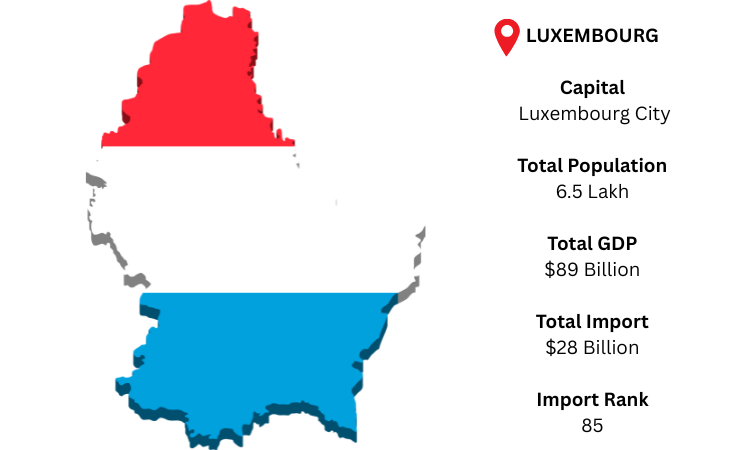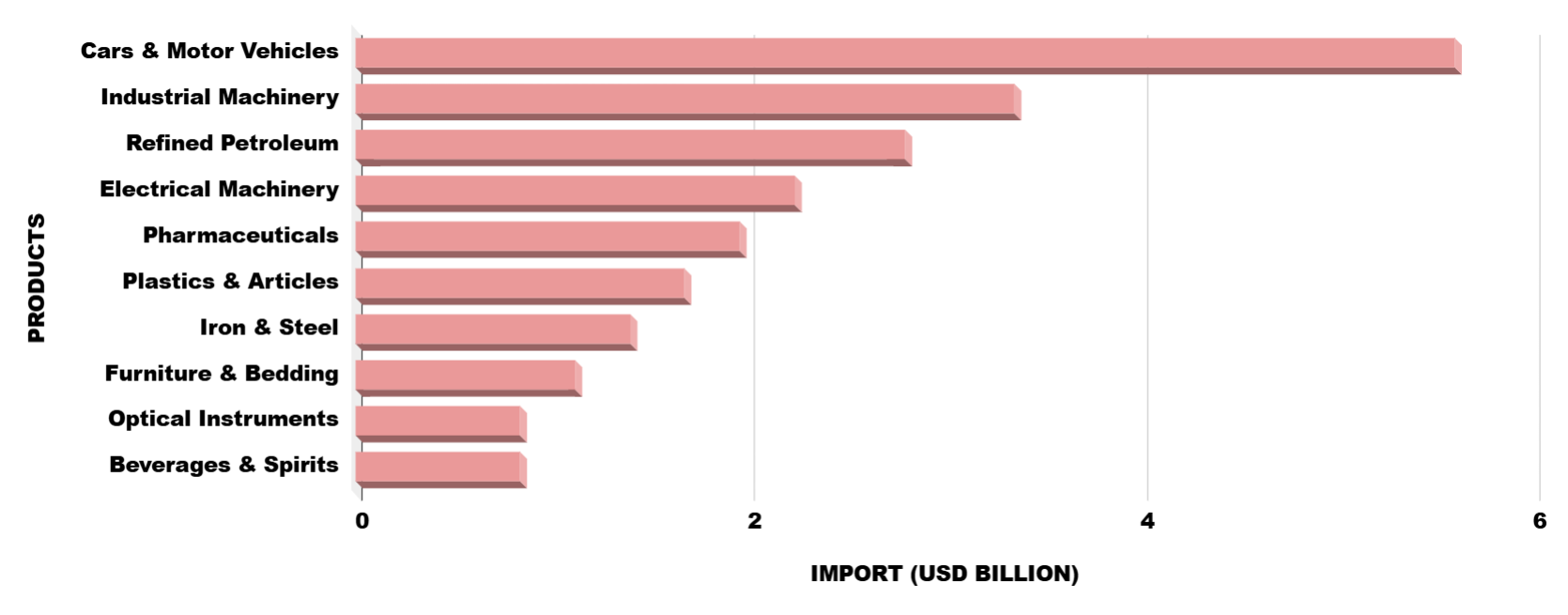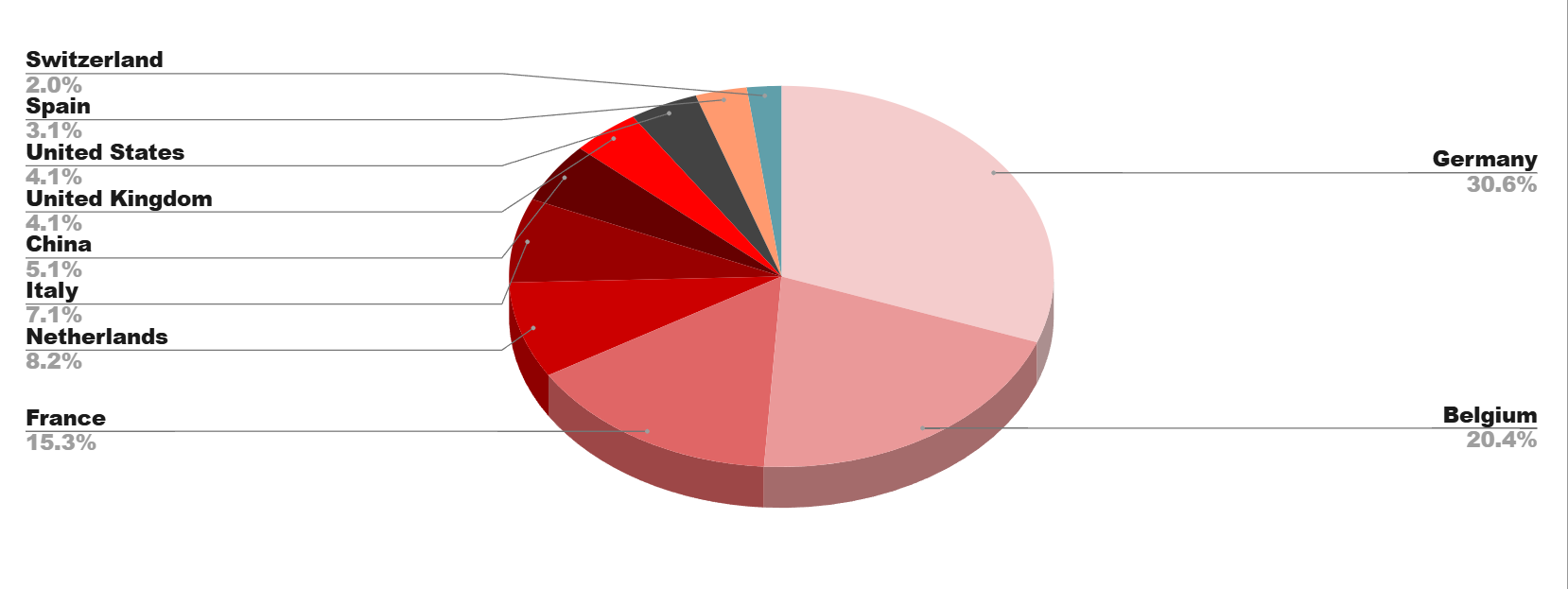One of the richest and smallest countries in Europe, Luxembourg serves as a significant hub for commerce and financial services. To sustain its sophisticated industry and high level of life, its open economy heavily relies on imports of automobiles, machinery, and refined fuels. The capital, Luxembourg City, is well-known for its robust banking and logistics industries. As per Luxembourg import data, with a population of over 0.65 million and a GDP of approximately USD 89 billion, Luxembourg is expected to import USD 28 billion in total in 2024, demonstrating its importance as a major EU trade gateway.
As per Luxembourg customs data, the top imports from Luxembourg demonstrate the modern economy's emphasis on machinery, cars, and refined fuels. Its wealthy consumer and industrial market is also reflected in pharmaceuticals and high-value instruments.



